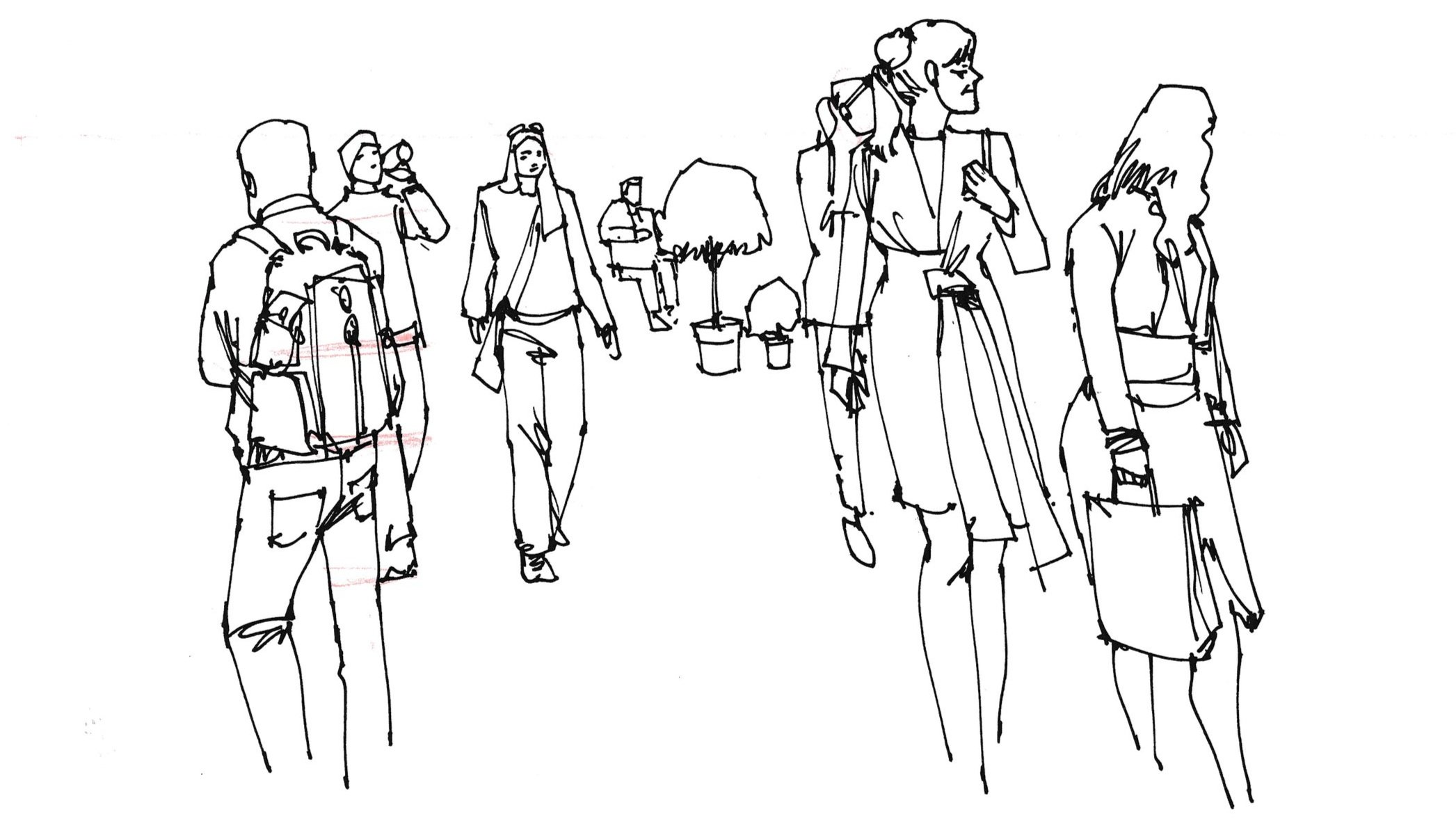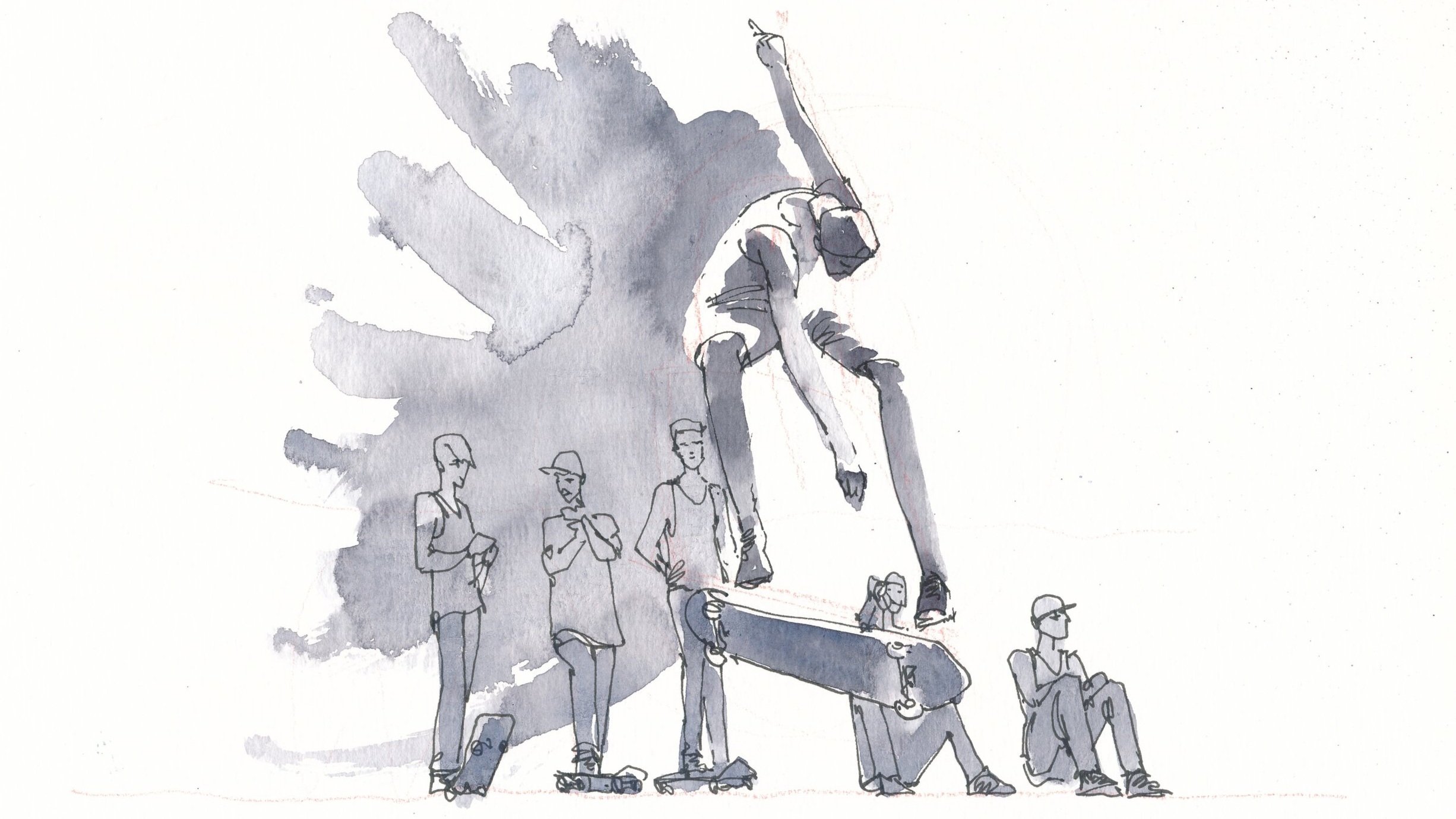Learn to tell a story of a character through drawing and painting their expression.
I partnered with Etchr Studio, producing my third introductory sketching course, further clearing the path of figure sketching for Etchr students.
Follow along on a journey through the nuances of sketching people’s expressions and seamlessly composing a crowd with simple tools such as a pen, a brush, and a single paint of watercolor. Join this four-part course from May 7th to June 18th, streaming every Tuesday at 2 pm EST.
This course is suitable for intermediate artists.
Recommended materials:
Alternatively: Fountain pen or rollerball pen
Fountain pen
Pencil (preferably 2B)
Sketchbook or sketchpad (suggested: 120-180g)
Watercolour sketchbook or sketchpad (suggested: 180-300g)
Water cup
Paper tissue
A set of watercolours (Recommended colours: Indigo, Payne's Grey, Neutral Tint, Sepia)
Water cup
Round brushes (medium-sized: 8-12)
Course Curriculum
Session 1: Facial Expressions
Learn how to progress from sketching generic human faces to imbuing them with life and expression. Using simple tools—paper, pencil, pen, and ink—you will learn what makes a sketch of a person lifelike and what you should focus on when sketching quickly, like if you were drawing people from a busy street. At the end of this session, you’ll be able to put a set of expressive faces on paper using very economical tools and techniques.
Session 2: Proportions & Perspective
Learn how to sketch full figures at different distances. By using simple tools like paper, pencil, pen and ink, you will understand which details are adequate to include at each distance/scale. At the end of this session, you’ll be able to correctly proportion sketched people and place them in relation to each other, creating a scene that simulates an urban perspective.
Session 3: What to Paint, What to Leave Out
Learn how to manage the right balance between ink and watercolour in sketching a human figure. By using a pen and a single paint of watercolour, you’ll exercise the limit of when to stop sketching and when to let painting take over. You will also learn the value of leaving white paper and missing lines. At the end of this session you will be able to create expressive faces and full human figures appearing to be in motion.
Session 4: Puzzle Piecing Figures into a Scene
Learn how to tie together everything learned from the previous sessions in sketching one cohesive scene! Manage detail of figures and faces at different distances, practice the details of different human expressions, join several figures together in the same composition as if they were puzzle pieces, explore the potential of the roles of ink and watercolour in static and moving figures and in enhancing the expression of a face, and master the counterintuitive art of refraining from drawing all the lines you see! At the end of this session you will consolidate all these concepts and be able to apply them to images of everyday life using a pen and a single paint of watercolor.




